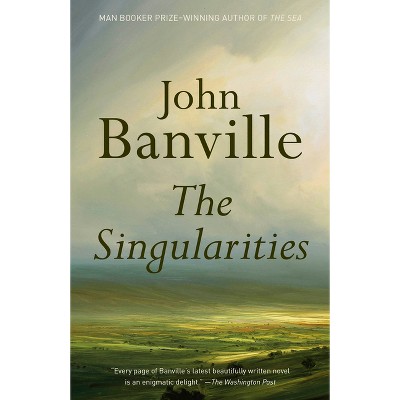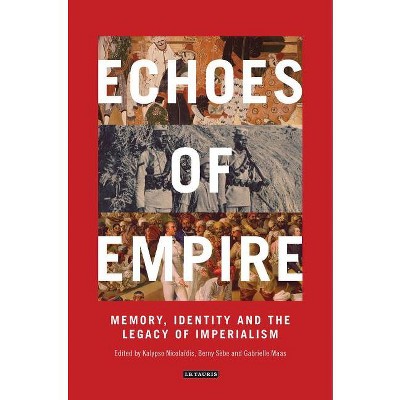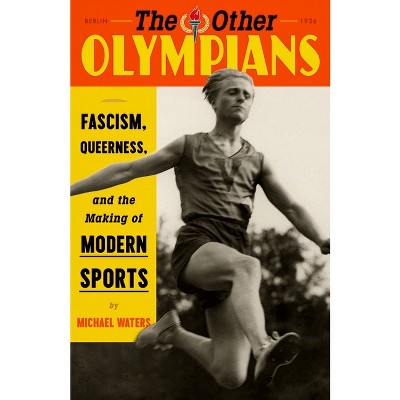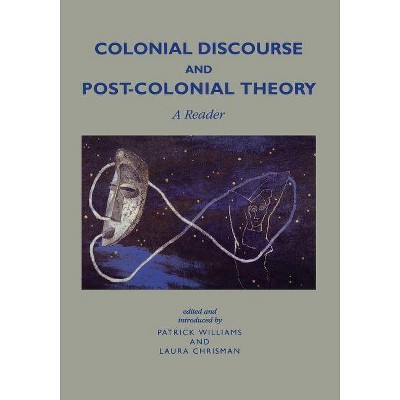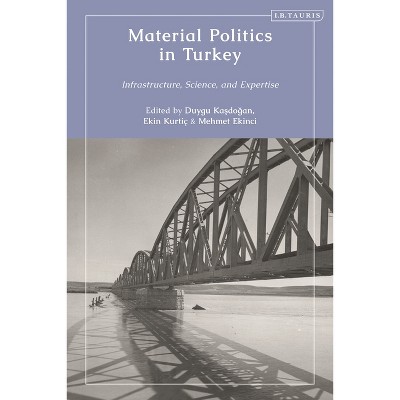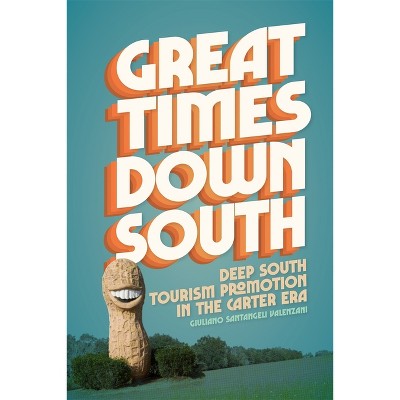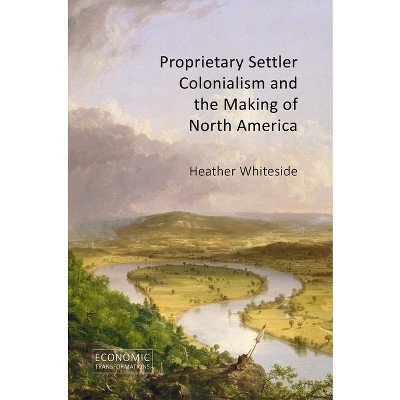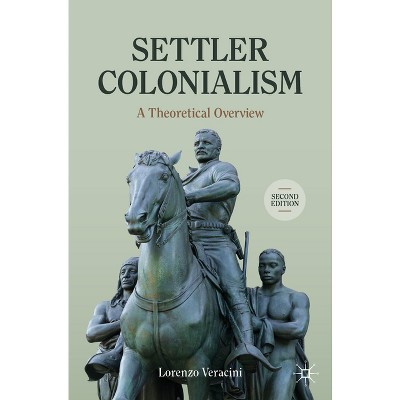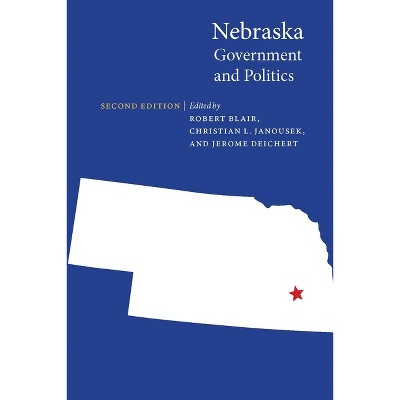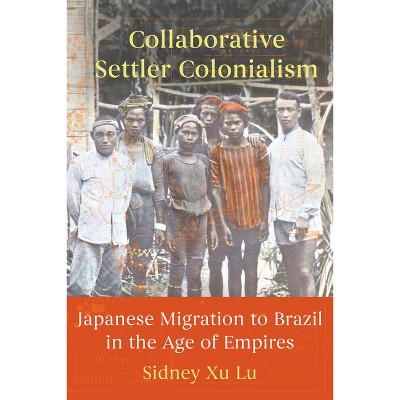Sponsored

Recognition Politics in Settler Colonial States - (Unsettling Colonialism in Our Times) by Emile Badarin (Hardcover)
$115.99
In Stock
Eligible for registries and wish lists
Sponsored
About this item
Highlights
- Using Palestine as a case study, Recognition Politics in Settler Colonial States shows how recognition politics operate to legitimize long-standing colonial power structures.In existing scholarship, recognition has been seen as an asset coveted by indigenous communities.
- About the Author: Emile Badarin, born and raised in Palestine, holds a PhD in Middle East Politics from the University of Exeter, UK.
- 266 Pages
- History, Middle East
- Series Name: Unsettling Colonialism in Our Times
Description
About the Book
A ground-breaking new perspective on recognition politics in the context of settler colonialism.Book Synopsis
Using Palestine as a case study, Recognition Politics in Settler Colonial States shows how recognition politics operate to legitimize long-standing colonial power structures.In existing scholarship, recognition has been seen as an asset coveted by indigenous communities. This book forwards a new, theoretically ground-breaking perspective. Emile Badarin shows that in colonial contexts, settlers use recognition to legitimize and normalize the dispossession and elimination of Indigenous people. More than this, settler-colonial states themselves actively pursue recognition, employing it as a means to further the elimination of the indigenous societies they seek to replace. In making the case, the book critically examines the Euromodern categories of race, racism and racial hierarchies and draws new conclusions about the interplay between colonialism, racism and Zionism. Central to this analysis is how anti-Zionism has been strategically equated with anti-Semitism, and effectively used as a tool for the advancement of both settler-colonialism in Palestine and Israel's recognition on the international stage. The book delves into indigenous normative resistance against colonial recognition politics through the lens of the Palestinian practice of ?umud (steadfastness), extracting its philosophy of liberation as a pathway towards a decolonial future for all in Palestine and beyond.
Review Quotes
Recognition and misrecognition have been crucial to enabling and furthering colonial subjection. They still are, and Emile Badarin insightfully unpacks the operation of this dynamic. Could a systematic focus on recognition contribute to finding an ethical way out of the current disaster in Palestine?
Lorenzo Veracini, Professor, Swinburne University of Technology, Australia
Recognition Politics in Settler Colonial States by Emile Badarin brings the world up to speed with how dispossession and elimination is sought to be normalized in Palestine. What Zionists have historically failed to understand is how the Palestinian child they torment and force to remove and deny the living insignia of their historic pride of place will grow up, master a defiant prose, and come back to raise that flag even higher for the whole world to see... Emile Badarin's bold, brilliant, and defiant voice in this book is the voice Israel and its US and European handlers have failed to silence and suffocate!
Hamid Dabashi, Professor, Columbia University, USA
About the Author
Emile Badarin, born and raised in Palestine, holds a PhD in Middle East Politics from the University of Exeter, UK. He is the author of Palestinian Political Discourse (2016) and has published extensively in peer-reviewed journals on international and Middle East politics and the Question of Palestine.Dimensions (Overall): 9.21 Inches (H) x 6.14 Inches (W) x .63 Inches (D)
Weight: 1.21 Pounds
Suggested Age: 22 Years and Up
Number of Pages: 266
Genre: History
Sub-Genre: Middle East
Series Title: Unsettling Colonialism in Our Times
Publisher: I. B. Tauris & Company
Theme: Israel & Palestine
Format: Hardcover
Author: Emile Badarin
Language: English
Street Date: June 26, 2025
TCIN: 1004266071
UPC: 9780755656226
Item Number (DPCI): 247-37-9453
Origin: Made in the USA or Imported
If the item details aren’t accurate or complete, we want to know about it.
Shipping details
Estimated ship dimensions: 0.63 inches length x 6.14 inches width x 9.21 inches height
Estimated ship weight: 1.21 pounds
We regret that this item cannot be shipped to PO Boxes.
This item cannot be shipped to the following locations: American Samoa (see also separate entry under AS), Guam (see also separate entry under GU), Northern Mariana Islands, Puerto Rico (see also separate entry under PR), United States Minor Outlying Islands, Virgin Islands, U.S., APO/FPO
Return details
This item can be returned to any Target store or Target.com.
This item must be returned within 90 days of the date it was purchased in store, shipped, delivered by a Shipt shopper, or made ready for pickup.
See the return policy for complete information.
Frequently bought together

$18.88
MSRP $27.00
Buy 1, get 1 50% off select books
4.8 out of 5 stars with 575 ratings
Trending Non-Fiction

$15.68
Buy 1, get 1 50% off select books
4.8 out of 5 stars with 204 ratings

Highly rated
$19.31
was $20.98 New lower price
Buy 1, get 1 50% off select books
4 out of 5 stars with 65 ratings

$18.28
was $19.58 New lower price
Buy 1, get 1 50% off select books
4.7 out of 5 stars with 17 ratings

$4.59
MSRP $7.99
Buy 1, get 1 50% off select books
4.8 out of 5 stars with 123 ratings

$6.20
MSRP $10.95
Buy 1, get 1 50% off select books
4.8 out of 5 stars with 33 ratings

$7.09
MSRP $9.99
Buy 1, get 1 50% off select books
4.9 out of 5 stars with 46 ratings
